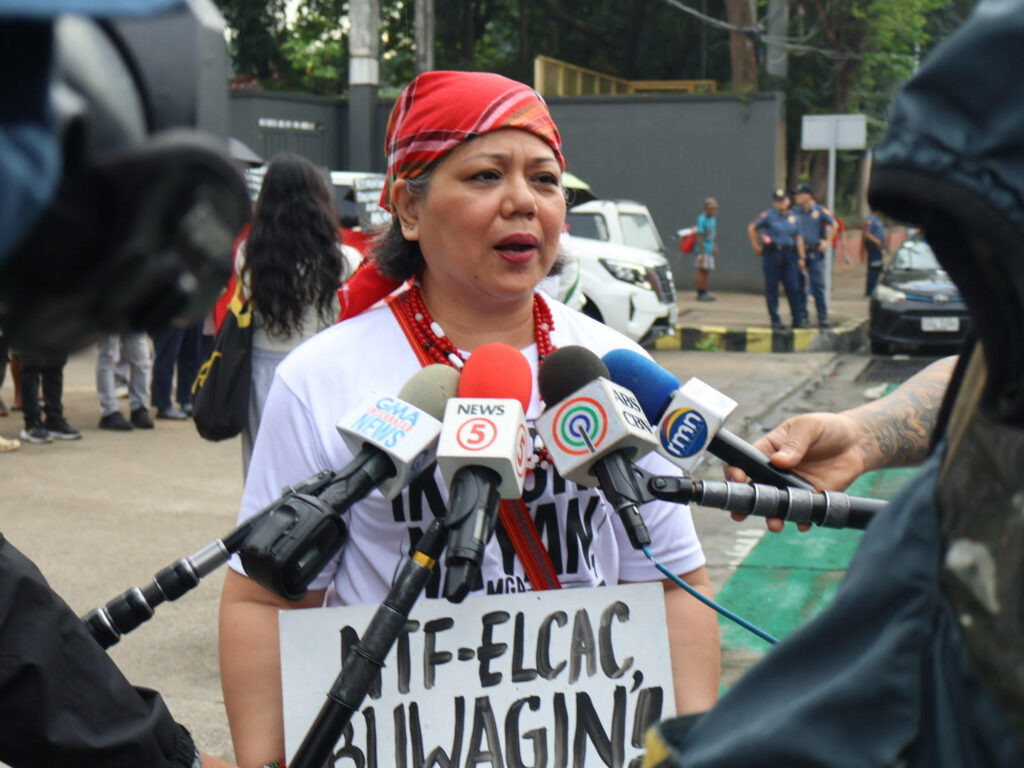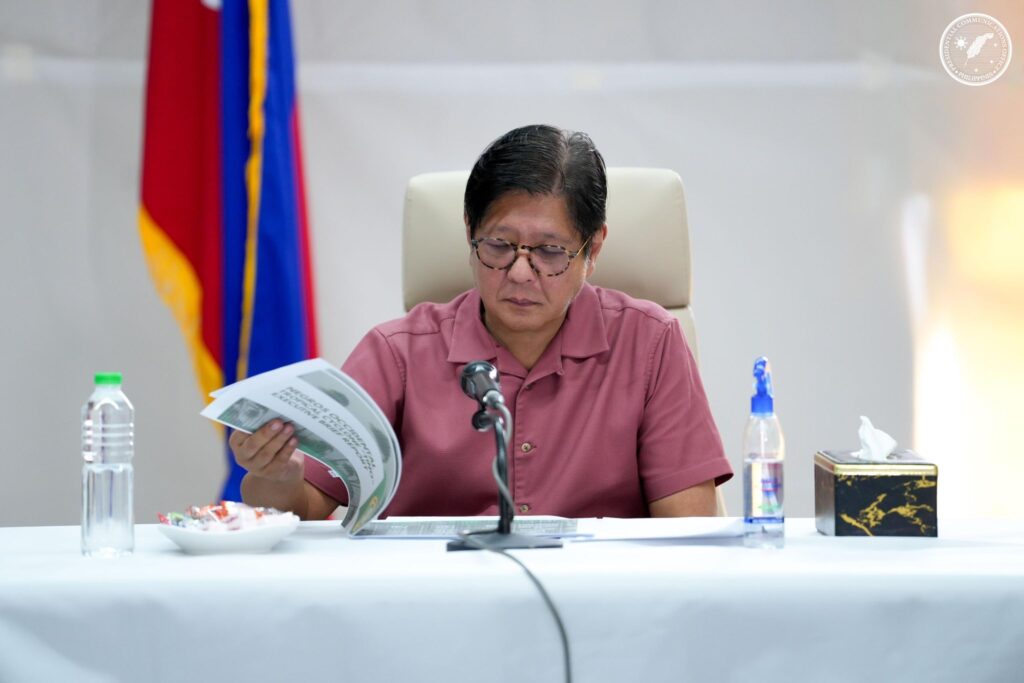📷: Darren Telan | FB
By RAYMUND B. VILLANUEVA
Darren Telan was a successful young businessman, riding a high that few Gen Z-ers have experienced. A college grad and a new corporate employee when the Covid-19 pandemic hit, he decided to resign and turn his shoe cleaning hobby into a full time enterprise with his two brothers. With the help of slick shoe care videos, their business took off in no time and became a hit.
What started as a garage venture gave the young entrepreneurs enough income to rent shops entirely dedicated to their business. They named it Kicksalvation that eventually developed its own shoe care items. Kicksalvation helped inspire a growing number of similar businesses nationwide by being social media’s most recognizable brand, creating a cult following among shoe aficionados as well.
It was Darren who worked fulltime as his elder sibling had work while the younger one at the time had school. With more money in his physical and digital wallets, however, it became too easy for Darren to enticed into online gambling.
He said it started with small bets that became more frequent. Pretty soon, he spent all-nighters on betting sites, losing more than winning. He began absenting himself at the shop, missing deadlines on shoe cleaning and restoration jobs. All his savings were soon gone, then he started borrowing heavily and dipped into Kicksalvation’s earnings and savings.
“Playtime, endorsed by Vic Sotto, Bingo Plus and Arena Plus was where I played most,” Darren said, adding he played live games like Crazy Time, Monopoly Evolution, as well as various online card games such as baccarat and poker. He started in August 2023 and played heaviest the entire 2024.
Darren admits to suffering physically and emotionally in his darkest gambling days. “It was so difficult that it felt I no longer knew myself. What I thought I would never do, such as lying to my loved ones and borrowing huge amounts, I did. It was like being drawn to the work of the devil,” he revealed.
Darren’s elder brother Donovan notice something was off. He sat Darren down in January 2025 and asked what was bothering his once confident sibling. It was all that Darren needed and pent-up emotions gushed forth. Darren admitted to having ran the business to the ground because of his gambling.
“Let’s rise from this,” was all Donovan said to his brother after a brief stunned silence. Darren said Donovan’s calm and understanding reply was a stronger wakeup call than a slap on the face or a punch at the gut.
National gambling problem
A 2021 Batangas State University research among young adults like Darren reveals that almost two-thirds (64%) of their nearly 200 respondents said that they have engaged in gambling. Of these, 45% were “non-problem gamblers, 43% were “probable pathological gamblers,” while 12% were “in-transition gamblers.” The study revealed that the respondents started gambling because of “financial, family and conduct problems, early big win and problems with alcohol or other drugs,…overspending..[and] peer pressure.” Majority, like Darren, are male (60%), 21 to 25 years old (41%), single (50%), and college graduates (47%).
Sadly, a substantial percentage of gamblers (41%) belong to the poorest, with monthly incomes ranging from P1,000 to P5,000. The amounts of money they lose, of course, are not comparable to big rollers who play in casinos or bet big in cockfights and can lose tens of millions in a matter of seconds.
Gambling among Filipinos has become worse than before, an epidemic made worse by online gambling sites that were in turn encouraged by the pandemic lockdowns. No less than the head of the Roman Catholic Church in the Philippines complained of the activity’s ill social effects.
“There is no greater madness than a government agency pretending to be concerned about illegal offshore gambling, while online gambling has been legalized right here in our own country — completely, shamelessly. Open to everyone, whether young or old, 24 hours a day, seven days a week,” Catholic Bishops’ Conference of the Philippines chairperson Juan Pablo Cardinal David said. “Who would still bother sneaking into casinos for the rich when anyone can gamble while lying in the living room, in the bedroom, in a child’s pocket — in the light of a cellphone?” the Diocese of Caloocan prelate added.
It is not only online gambling apps—private such as those endorsed by Vic Sotto or government’s PAGCOR that parades vixen Ivan Alawi as celebrity endorser—that have hooked more Filipinos into the habit.
The quintessential gambling activity among Filipinos, cockfights, became more popular online since the pandemic. During the lockdowns, sabong became 24/7, hooking even OFWs and seafarers. Many have lost fortunes, several reportedly committing suicides for having lost their money and going into insurmountable debts. The phenomenon even created new cockfight designations, such as calling kristo (bet-takers) as master agents. They are the 100 or so missing sabungeros alleged by whistleblower Julie Patidongan to have been abducted, tortured and thrown into the depths of Lake Taal to dissuade others from ever threatening the interests of gambling lords.
While other countries like China and most Islamic countries prohibit or limit online gambling, the Philippine government embraced it, passing laws such as the Philippine Offshore Gaming Operations (POGO) Act (Republic Act 11590). Senator Pia Cayetano, main sponsor of the law repeatedly justified her bill, citing potential windfall of nearly P32 billion a year for healthcare and other services. In just four years however, POGO had been banned for the many gambling-related crimes it brought into the country: human trafficking, prostitution, kidnapping, and murder that may involve the highest officials of the country.
‘Limiting’ online gambling
Seeking to cash in on growing concerns against online gambling, Sen. Sherwin Gatchalian has announced filing a bill regulating online gambling. “Due to its accessibility, online gambling activities have magnified the dangers from gambling and have been linked to the erosion of our moral fibers, as it has caused an increase in mental health problems, financial problems, addictive behavior, vices, and crime rates,” Gatchalian’s press release says.
He added that his proposal would seek to ban gambling sponsorships of public events and campaign donations. “It likewise mandates regulators to allocate a portion of collected regulatory fees toward the establishment of gambling addiction rehabilitation centers and sets a minimum cash-in requirement of P10,000 to discourage impulsive and easy access to gambling platforms,” he added.
Gatchalian’s proposed measure also includes:
- Prohibition of e‑wallet payments as online gambling platforms;
- Raising of minimum age of participation in online gambling from 18 to 21 years old;
- Setting of a top-up threshold of ₱5,000;
- Restriction of gambling advertisements near sensitive areas such as schools and churches;
- Imposition of penalties on regulators who fail to enforce the law—liable for legal action, job loss, and fines or prison time; and
Akbayan Partylist Rep. Chel Diokno has also expressed interest in filing a counterpart bill at the House of Representatives to “strictly regulate” online gambling. “For every cash-in on an e-gambling app, a family is destroyed and a youth’s future is taken away. Only the big gambling corporations win from the dream others lost,” Diokno said.
Recovering gambling victim Darren said it is good the proposed measures use the word “gambling” instead of the euphemistic “gaming” that tend to blindside potential gamblers. He also disagrees with the P10,000 minimum bet limit he thinks would drive gamblers to resort to heavy borrowing or selling items to feed their addiction.
Darren believes regulation is not the solution to the runaway problem of online gambling. “I wish a total ban on all e-wallets and websites on gambling. It has being done in other countries. We can, too,” he said.
Long road to recovery
After his admission of his gambling problem to his brother, Darren immediately resolved to surrender control of his personal and business finances to his family. He uninstalled all online gambling sites in his gadgets, even cash transaction apps like GCash and PayMaya that he used to place bets. He also went public, admitting to his addiction and apologizing to Kicksalvation clients he disappointed.
Darren knew he was on the right path when majority of the messages and comments he received wished him well. Drawing on his expertise on producing slick videos, he created a Facebook page dedicated to gambling recovery stories and advice, drawing on what he himself is going through. “Dating nalulong, ngayo’y tumutulong,” is his page’s slogan. (Once an addict, now a helping hand.)
He has also joined Gamblers Anonymous Philippines, quickly becoming one of its “trusted servants.” The group, established in 1957, also hold online meetings to help recovering gamblers from suffering relapses.
“Now, while determined on paying off debts acquired during my gambling days, I have serenity of mind for about six months now. I have also sobered up. Of course, I now have greater purpose because I’ve come to know the feeling of spreading awareness and belonging to support groups,” Darren said. | via KODAO PRODUCTIONS
= = = = = =
Gamblers seeking help may follow Darren Telan’s Facebook Page or Gamblers Anonymous Philippines or call its 24-hour helpline +63 915 938 2808.




